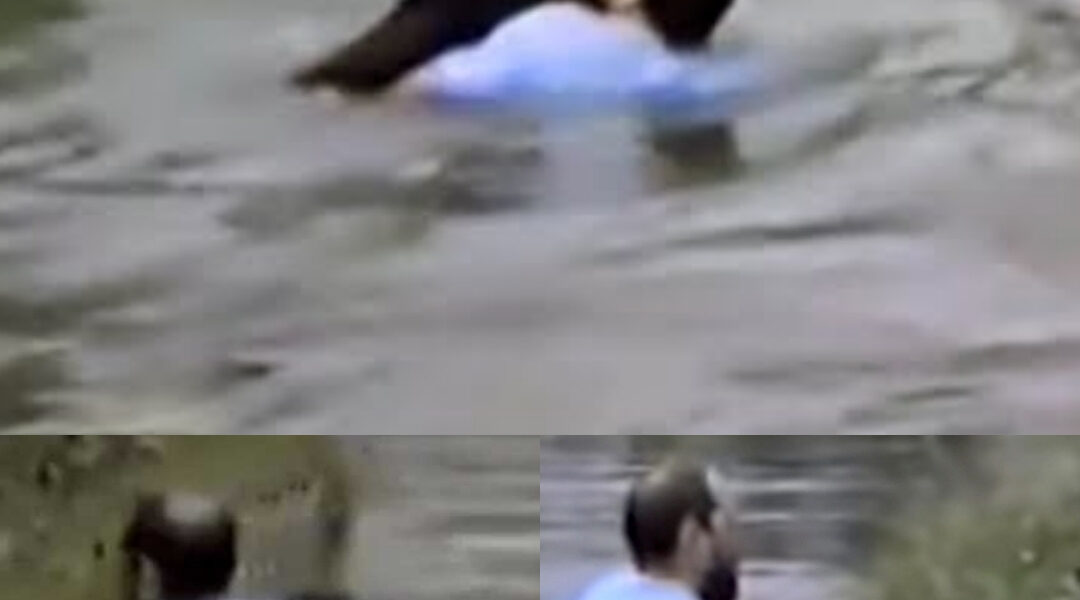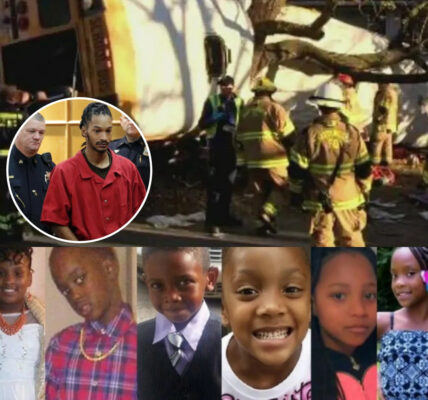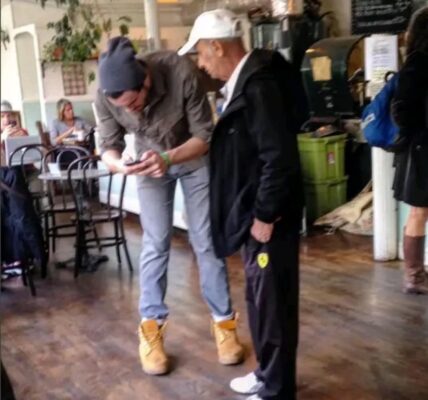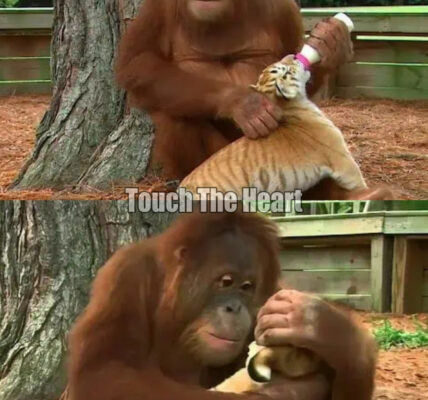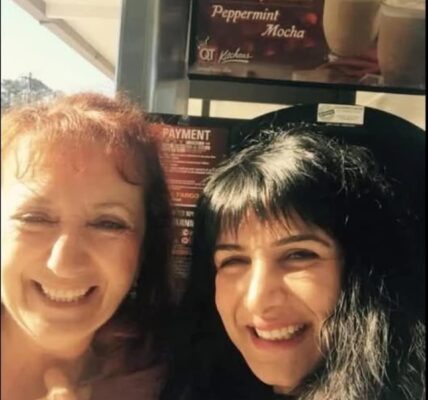It was supposed to be an ordinary family outing — a sunny afternoon at the Detroit Zoo, where Rick Swope and his wife watched their three kids marvel at the newly opened chimpanzee exhibit. The air buzzed with laughter, chatter, and the calls of the animals. Families leaned over railings with popcorn and cameras, enjoying the spectacle of the chimps swinging across ropes and playing in the grass below.
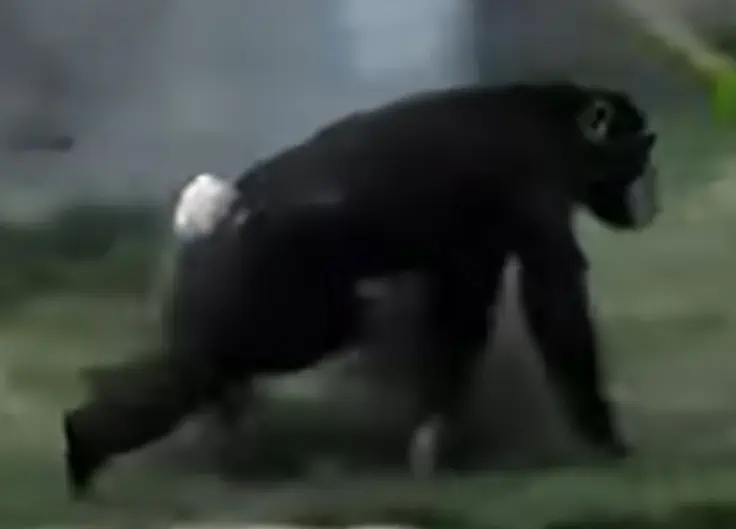
Then, in an instant, everything changed.
A splash echoed across the enclosure — sharp, out of place. One of the chimps, a 135-pound male named Jo-Jo, had fallen into the moat surrounding the habitat. For a moment, people thought he might climb out on his own. But Jo-Jo flailed helplessly, the water pulling him down. His arms thrashed, his face broke the surface, then vanished again.
Chimpanzees, unlike humans, cannot float — their dense muscles and low body fat make water a deadly trap. And as the crowd gasped, no one moved. The zookeepers shouted warnings, terrified that any attempt to help would provoke the other chimps, who could turn aggressive in an instant.

But Rick couldn’t just stand there.
“Everyone was watching,” he later said. “And when he went under for the second time, I knew I had to do something.”
Without a second thought, Rick climbed the four-foot barrier, swung himself down into the moat, and plunged into the cold, murky water. The crowd screamed. His wife froze. But Rick kept swimming.
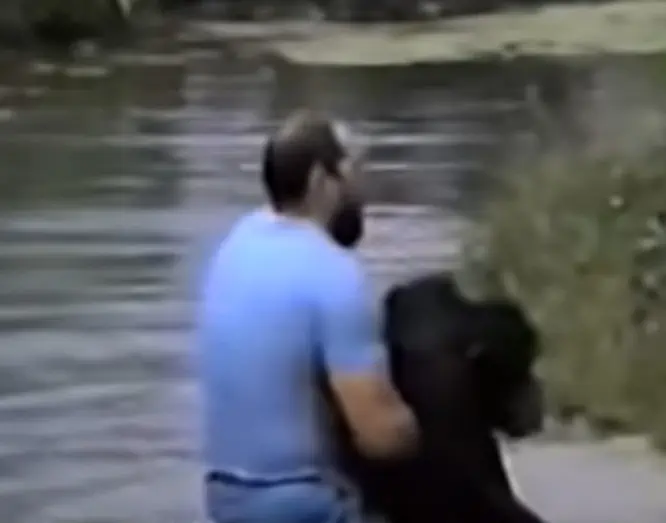
He reached Jo-Jo just as the chimp’s strength was giving out. Wrapping his arms around the animal’s torso, Rick struggled to lift him. The water was deep, and Jo-Jo’s weight made the rescue almost impossible. “I kept pushing him up,” Rick recalled, “hoping it would help him breathe.” His mind raced — what if the other chimps attacked? What if the keepers couldn’t reach him in time? But fear had no place here. Only instinct. Only the desperate need to save a life.
Finally, with one last push, he got Jo-Jo to the bank. The chimp lay motionless, eyes closed, chest still. Rick turned him over gently. And then, in that quiet, uncertain moment, Jo-Jo opened his eyes.

“He looked straight at me,” Rick said. “And I knew he was alive.”
The two locked eyes — man and chimp, both soaked, both trembling. For a fleeting second, the world around them fell away. It wasn’t a zoo anymore. It was two beings who had met at the edge of death and chosen life instead.
Rick stayed with Jo-Jo until he was sure the chimp could stay safely on the bank. Only then did he wade back across the moat, climbing out to a stunned silence. His clothes clung to him, his heart pounded, but his face was calm. “I did what anyone should do,” he told a reporter later.
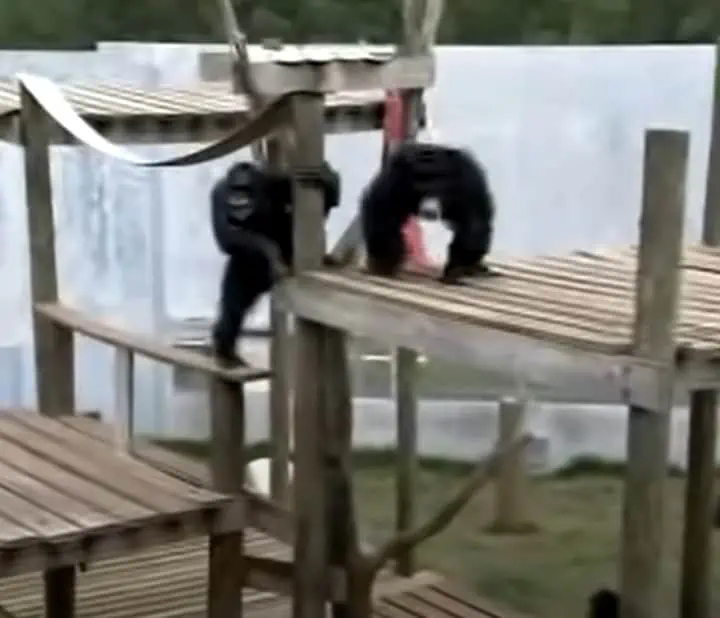
Not everyone agreed. Some zoo officials called his act reckless — an unnecessary risk, both to himself and to others. But others called it something else entirely: heroism.
Earlier that same year, another chimp had drowned in the same moat. Without Rick’s intervention, Jo-Jo would have suffered the same fate. “If I hadn’t gone in,” he said quietly, “no one else would have.”
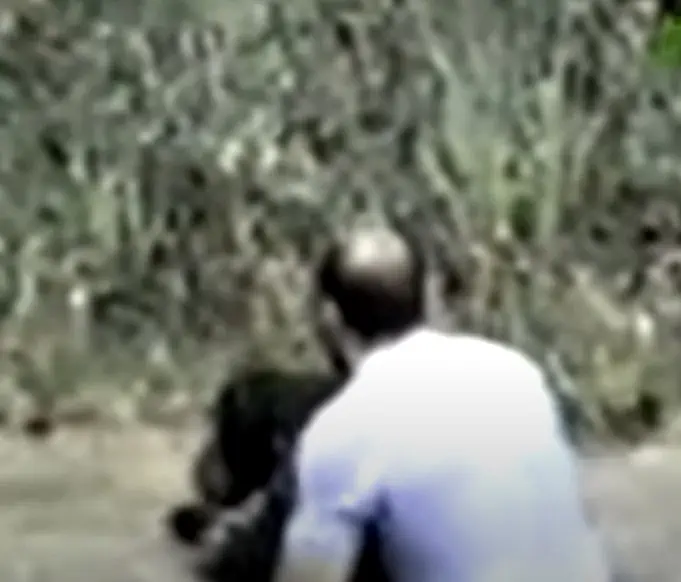
News of the rescue spread quickly. Television stations replayed the footage. Newspapers described it as one of the most extraordinary examples of human compassion ever captured on film. But Rick never sought attention. He didn’t see himself as a hero — just a man who did what felt right.
When asked what his children thought, Rick smiled. “They’re proud,” he said. “They wouldn’t expect anything less from their dad.”
The Detroit Zoo later redesigned its exhibits to prevent future accidents, but the story of that day became something larger than one act of bravery. It became a symbol — a reminder that empathy doesn’t stop at the borders of species.
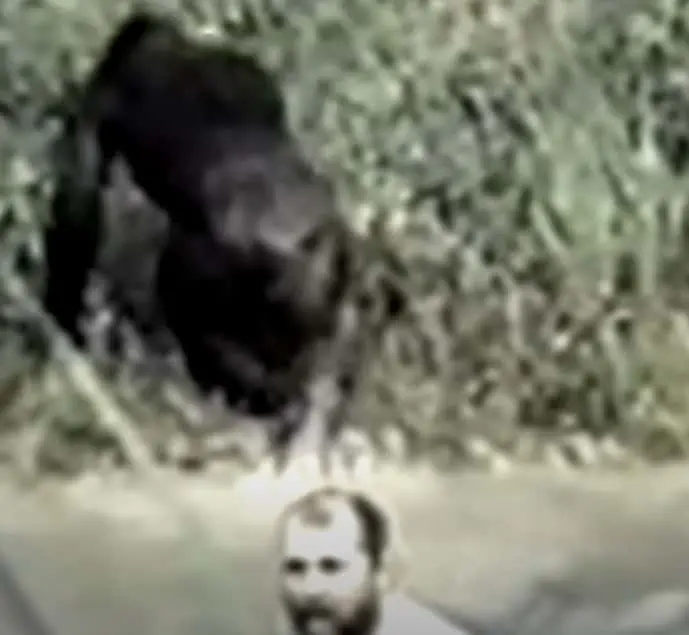
Rick didn’t see an animal that day. He saw a living being, terrified and helpless, and he acted on instinct — the same instinct that makes a mother rush into danger for her child, or a stranger stop to help another on the road.
Years later, people still talk about it — the man who dove into the moat without thinking of himself, who reached out his hands and pulled a life from the water. In a world often hardened by fear and hesitation, Rick Swope’s leap was something pure — a flash of humanity in its truest form.
Because sometimes, courage isn’t loud. It doesn’t wait for applause or cameras. It simply moves — straight into danger, guided by a heart that refuses to stand still.
And that day, in a quiet corner of a zoo, a man and a chimp reminded the world of something timeless: that compassion, even in its simplest act, can ripple farther than we ever imagine.
